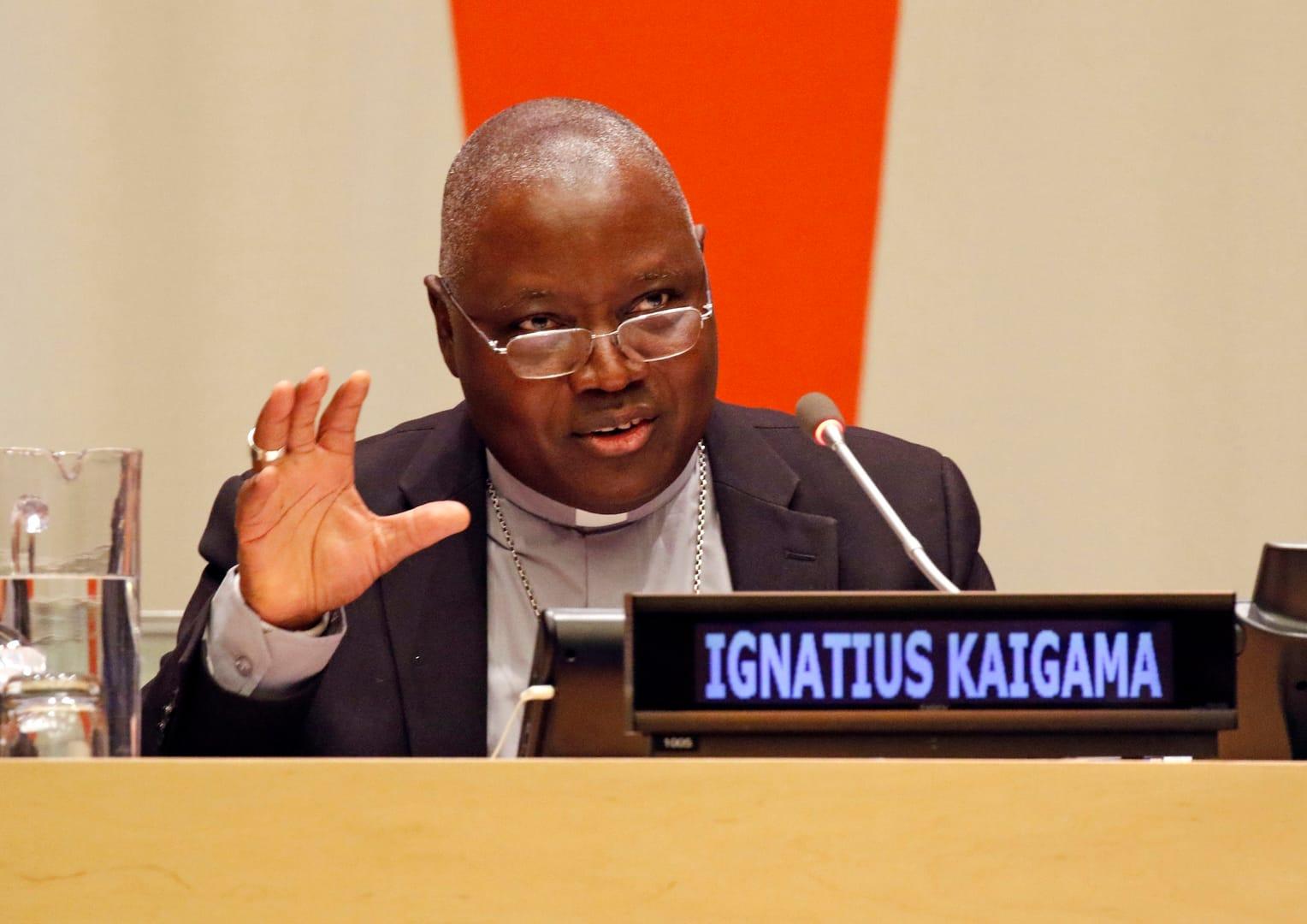YAOUNDÈ, Cameroon – A leading Nigerian prelate has said that Africans see Catholicism in the West as a “Church in decline,” while in Africa Christianity is flourishing because of a strong Biblical faith and traditional moral convictions.
“The African understanding of Biblical authority, sex, marriage, and sin may strike Western liberals as backward and superstitious,” said Archbishop Ignatius Ayau Kaigama of Abuja, but insisted those beliefs have strong appeal in African cultures.
The 65-year-old Kaigama said that Catholicism globally is “evolving toward Africa.”
Kaigama, who recently participated in the Oct. 4-29 Synod of Bishops on Synodality, spoke in an exclusive interview with Crux after new statistics were released by the Vatican confirming the Church’s growth in Africa.
The data, released Oct. 22 on the occasion of World Mission Sunday by the Vatican’s Fides News Agency covers the period of Dec. 31, 2020, to Dec. 31, 2021.
The report indicates that Catholics across the globe increased by 16.2 million over that span, and reaching a total of 1,375,852,000 people, representing 17.67 percent of the world’s population.
According to the data, Africa continued to be the growth center of Catholicism, increasing by 8.3 million people. The Americas saw a modest growth of 6.6 million. Asia grew by 1.49 million while Oceania’s Catholic population went up by 55,000. Europe again declined, recording 244,000 fewer Catholics in 2021.
The report also shows Africa made big gains in the number of male and female religious, and indicates further that the continent has a far higher rate of Mass attendance.
Kaigama cited five factors in explaining this “remarkable growth.”
First, he said, African Christianity dovetails with traditional religious convictions and experiences on the continent, including “belief in miracles and healing, a love of biblical stories and proverbs, a holistic vision of the self, [and] the Church’s mission.”
Second, Kaigama said African Christianity has preserved a strong sense of the authority of the Bible.
“The Bible has a very different status in African societies,” he said. “Where Christianity has become dominant in the last century, the Bible remains a sacred text, relevant and living.”
“The Bible is more than a compilation of historical documents,” Kaigama said. “It is, in very significant ways, an African Testament. For large segments of African Christian societies, the world of the Bible is contemporary. Old and New Testament narratives of sacrifice, polygamy, plague, agriculture, dancing, shepherds, tensions between nomadic pastoralism and peasant dwellers, epidemics, and war have immediate relevance.”
The third factor, Kaigama said, is what he described as “the enduring importance of traditional concepts of family and morality. “
“This largely shields Africans from the cultural upheavals that the West is suffering, including redefinitions of male-female roles, chastity, holiness, the normalization of homosexual sex, etc.,” he said.
“While many in the West judge the African position on homosexuality as cruel, many Africans have no problem in naming homosexuality a sin and praying for the redemption of all sinners,” Kaigama said.
While Kaigama warned against “homophobia in the African Church,” he also rejected any suggestion of “redefining the Word of God. “
Fourth, Kaigama said Christian reinforces a traditional African instinct for “a strong communal dimension.”
“Sin is not an individual, private, or merely interior reality,” he said. “Life is communal and holistic, natural and supernatural, and so sin has social, political, environmental, and even cosmic consequences.”
“This sense of the wholeness and interconnectedness of life means individuals are accountable to one another, for, as St. Paul writes, ‘If one member suffers, all suffer together, and if one member is honored, all rejoice together’.”
Pointing to the example of marriage, Kaigama said some liberal Western theologians may regard redefining certain aspects of Church teaching as a limited adjustment, but for Africans, he said, “To revise a part is to disrupt the whole.”
Fifth, Kaigama cited the appeal in Africa of some traditional beliefs and practices that have been downplayed elsewhere, such as exorcism.
“Demonology is credible for Africans in a way it can scarcely be for most educated Westerners, and so are ideas of exorcism and healing,” he said.
Kaigama said most African Christians acknowledge the Church in the West as their “parent Church,” but added that “we also see it as a Church in decline.”
“Christianity may be waning in Western Europe, but it’s on an impressive growth curve in other parts of the world, especially in Africa,” he said.
“Surely, northern Christians have gifts of the Spirit to share with the south, but they must learn to assume a posture of reception,” Kaigama said. “The Church, like Western civilization as a whole, is evolving toward Africa.”
“We can move ahead if we make our way to the light shining from the dark continent,” he said.













